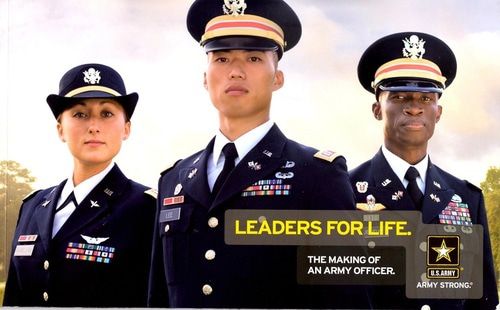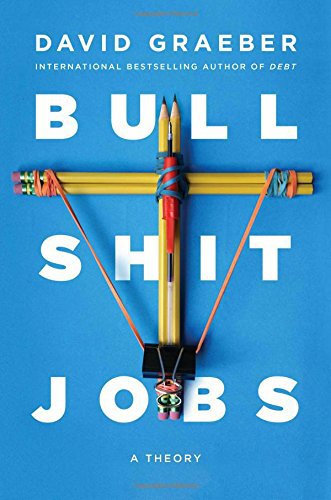


06/01/2018
Remembering the fallen. This month of course ended with Memorial Day, when we remember those who died
serving
Around noon on Tuesday, May 1st my son Danny came into the study to tell me a soldier from his former unit had been killed in Afghanistan the previous day.
The fatality was Spc. Gabriel D. Conde, killed April 30th by small-arms fire in a district northeast of Kabul "while providing security for a U.S. Special Operations unit." A second U.S. soldier was wounded in the same operation.
ended last year. They were actually in the same company (though different platoons). Danny knew Spc. Conde quite well. The unit has since been deployed in Afghanistan.
Spc. Conde came from Loveland, Colorado. He was the second U.S. combat fatality in Afghanistan this year, the first having been Sgt. Mihail Golin of Fort Lee, NJ, killed on New Year’s Day while on patrol near Jalalabad in the far east of Afghanistan.
If military schedules had been different by a few months, that could have been Derb, Jr. under fire April 30th. As parents we have the obvious parental feelings about this. What his feelings are, I don’t know. He has maintained a proper soldierly reserve. In any case he mainly keeps his feelings to himself, like his Dad.
What Spc. Conde’s parents are feeling, I think I can imagine. Our heartfelt condolences to them in their grief, and to all who mourn loved ones on Memorial Day.
The Forever War (1): Light at the end of the tunnel. It’s hard to read of Spc. Conde’s death without feeling anger at our damn fool stupid brainless politicians.
Military.com ran a headline that tells it all: Gabriel Conde Was 5 When the War That Took His Life Began. It Shows No Signs of Ending. [By Richard Sisk, May 3, 2018] From the article:
Army Spc. Gabriel D. Conde’s short life spanned the history of U.S. involvement in Afghanistan since Sept. 11, 2001, from the euphoria over the fleeting early successes to the current doubts about the new strategy to break what U.S. commanders routinely call a "stalemate."When Conde was six years old, then-National Security Adviser Condoleezza Rice said the Taliban had been defeated and the Afghan people were now free "to create a better future."
[There follow eight more paragraphs of cheery uplifting talk about light at the end of the tunnel from Donald Rumsfeld, George W. Bush, Barack Obama, and Donald Trump.]
Last week, the Taliban announced the start of its 16th annual spring offensive.
Politicians are of course necessary to the functioning of an orderly nation. No doubt most of them are decent enough in their private lives. Some appear to be quite intelligent. Plenty of them are clearly trying to do the best for the country, each by his own lights.
There are times, though, there are times when the only thing you want to say about politicians is: God damn them all to Hell.
The Forever War (2): Is there a case for it? "I beseech you, in the bowels of Christ, think it possible you may be mistaken." I’m always ready, in a spirit of proper epistemic humility, to yield to Oliver Cromwell’s beseechment. So in that spirit I ask: Is it possible that I am wrong, that the war in Afghanistan is not a futile waste of American lives and money?
One approach here is to seek out commentators whose opinions you generally respect, to see if any of them makes a plausible case for the opposite of what you believe.
OK: here was Daniel Greenfield, who I agree with much more often than not, posting at FrontPageMag.com on Memorial Day. Title of the post: "How Can We Honor the Soldiers of an Endless War?."
The era of wars that began and concluded neatly, with declarations, speeches, rules, objectives, deciding battles and signed peace accords, ended before the oldest active duty soldier serving today was born.The men and women who fight and die, leaving their families never knowing if they will return, and in what form, serve not in wars, but endless police actions, peacekeeping missions, terrorist pursuits and nation building exercises …
The Islamic resurgence has placed us in a state of permanent war. We may debate over which fronts that war should be fought on, but only the left can deny that the conflict itself is inescapable. We may fight it in Iraq or in New York, in Syria or in Sweden, the front lines may shift, but the war won’t go away.
And yet, paradoxically, this form of fighting takes us back to the origins of our military.
The heritage of the US Army goes back to the provincial regiments that fought in colonial territorial disputes with the French and defended the colonies against Indian raids … If you think the Afghanistan and Iraq wars are endless, the Indian wars arguably went on for 300 years …
That’s not much of an argument. Those wars that "concluded neatly" did so because we applied massive and relentless force, to the point where the enemy knew they were thoroughly beaten. We don’t do that any more. Rubble doesn’t make trouble.
I’m obliged to Greenfield for permission to "debate over which fronts that war should be fought on." Here’s my contribution to that debate.
Let’s stop all Muslim immigration and require all resident Muslim non-citizens to leave. We may still have issues with our own Muslim citizens, but I see no reason those issues couldn’t be handled by ordinary law-enforcement procedures under our Constitution.
As for "the Indian wars arguably went on for 300 years" Well, yes, arguably they did, because they were conflicts over the ownership of territory. Were North American lands to be settled and farmed by Europeans, or kept as the hunting and tribal-war preserves of the indigenes?
Are Americans clamoring to be allowed to settle and farm in Afghanistan and Iraq? First I've heard of it.
Daniel Greenfield is a smart guy who writes a lot of thought-provoking good sense. This piece, though, is a turkey.
Be as diverse as you can be. Still on the military beat: Last month I commented on some recruiting pamphlets a friend had showed to me. He passes by a recruiting booth on his way to work every day, and, although much too old for service himself, has developed an interest in the esthetics of these brochures.
This month he passed on some more.
Exhibit A: LEADERS FOR LIFE: The Making of an Army Officer. This is a beautifully-produced sixty-page booklet showing on the cover a white female, an East Asian male, and a black male.[Abridged PDF here.]

To be fair, the interior illustrations aren’t as distorted as that. I counted an actual majority of white males, 65 to 43; and that is not counting the scattering of historical photographs from the World Wars. The two-page spread on Special Forces (pp. 46-47) shows nine soldiers, every one of them a white male.
There is some slight discounting needed for the care with which the booklet’s publisher lets us know, by showing uniform name patches, that some of the white guys are Hispanic (Alvarado, Martinez) or Arab (Farid).


Exhibit B: A 34-page U.S. Army Education Program Guide. On the cover, a female who I think is East Asian. Of the 48 people I could identify on a quick scan through, only twelve were white males. Females were an actual majority: fourteen white, twelve black.
Exhibit C: The Making of a Soldier, a light 24-page introduction to the Army. The cover shows a black male. White males are comparatively well-represented inside, though: I counted nineteen out of thirty.
My summary: While the interior illustrations to these publications are merely unbalanced, the cover art is flagrantly, unashamedly anti-white-male.
The disappearing white male. As with Mars, so also with Venus.
The Mrs and I had the idea to take a weekend break at one of those adults-only hotels in the Poconos. You know the kind of place: heart-shaped jacuzzi, view over a lake, a bowl of strawberries dipped in chocolate waiting in your room, that sort of thing. Yeah, yeah, I know it’s corny. We're an old-fashioned couple; corny works for us.
I accordingly went on the internet and googled "romantic weekend getaway poconos." There they were, a good choice of hotels. Heart-shaped jacuzzi, check: view of lake, check: chocolate-dipped strawberries, check.
The thing that struck my eye, though, in the promotional websites for these places, was the extraordinary numbers of photographs showing a black man with a white woman. I put together a montage without trying very hard at all. (Looking closer, I think one of the ladies there may be high yaller; but she’s still way paler than the guy.)

I have nothing against miscegenation — how could I have? — but do they really have to bang us over the head with it like this?
And perhaps I shouldn’t pick out the love hotels for special scrutiny. It’s like this all over. Audacious Epigone tweeted this the other day:
Taken from too far away and observation’s blasé but as I walked the dog tonight I did a census on the posters lining the outside of the Walgreens down the road from home:4 black women
2 black men
2 white women
1 asian woman
1 hispanic woman
0 white menCity is 80% n-H white btw
Louis Farrakhan, tweeting on May 27th, called for an end to white men. It looks like the people who prepare advertising and promotional displays are way ahead of him.
Medieval booze. As mentioned in Radio Derb’s royal wedding coverage, I have been reading Ed West’s book 1215 and All That. It’s great fun; a sort of grown-up version, with a good bibliography, of the Horrible Histories my kids used to enjoy.

West is very good on how boozed-up the Later Middle Ages were. Writing about the reign of King John (1199-1216), he tells us that:
As a basic rule, everyone in medieval Europe was drunk most of the time, with the typical English peasant consuming on average eight pints of beer per day. There was often no clean water to drink in cities, and it was not until the seventeenth century that coffee and tea brought alternatives to slowly getting off one’s face all day long. Besides which, few people had jobs that required intellect and sobriety and life was pretty awful when sober.
The actual process of getting drunk eight hundred years ago doesn’t sound like much fun.
Beer at the time would have been absolutely disgusting, close to the texture of porridge as it wasn’t until the fourteenth century that hops were introduced from the Low Countries … Not even the most daring hipster has ever tried to recreate thirteenth-century ale as a statement of irony or quirkiness.
The upper classes at least had wine to drink, though, right? Well:
Peter of Blois wrote of the wine at Henry II’s court that "it turned sour and moldy, thick, greasy, stale, flat and smacking of pitch … I have sometimes seen great lords served with wine so muddy that a man must need [to] close his eyes and clench his teeth, wry-mouthed and shuddering …"
Hoo boy. It would of course be annoyingly Pinkerish of me to observe that we are very fortunate to be living in 2018 rather than 1918, or 1618, or 1218.
And possibly, on the gripe homeostasis principle, the general level of human dissatisfaction with life has not varied much through history.
Possibly. I can report, though, that after reading Ed West’s book my dinner-time glass (all right, glasses) of supermarket Pinot Grigio seemed strangely to taste better than before.
It’s OK to be John! (cont.). Our thirteenth-century ancestors may have endured wretched lives in a drunken stupor, but surely they had the consolations of faith, didn’t they?
Not all of them. Ed West:
Peter of Cornwall, prior of Holy Trinity, Aldgate, complained in 1200: "There are many people who do not believe that God exists, nor do they think that the human soul lives on after the death of the body. They consider that the universe has always been as it is now and is ruled by chance rather than providence."

King John was likely one of those people.
He apparently did not take Holy Communion after childhood, nor did he receive it at his coronation, which was considered shocking for the time. He openly ate meat on Fridays and hunted on feast days, blatantly breaking religious rules. Like his father, he found attending church unbelievably boring and he didn’t even pretend to make an effort.
I have nursed a mild personal resentment against King John since my schooldays. It seemed unfair that the only English King with whom I shared a name was such an unprincipled rogue, which indeed he was. We all knew A.A. Milne’s lines:
King John was not a good man —
He had his little ways.
And sometimes no one spoke to him
For days and days and days.
Subsequent Johns in the British royal line haven’t fared well. There have been very few Johns in line of succession to the throne since the thirteenth century. John of Gaunt (1340-99) was the only really noteworthy one. He never made it to the throne, but he begat the Lancastrian line of kings that provided Shakespeare with so much material.
In recent centuries there have been few royal Johns. The present queen’s father had a brother John, but he was an epileptic and died aged 13. The Windsors seem otherwise to have shunned the name John.
The New York Times may be vexed by John supremacy but royalty-wise, we Johns are an under-represented minority.
Work without meaning. Say what you like about medieval life, there was plenty for everyone to do.
Medieval Europeans were traditionally placed in one of three classes: those who fought, those who prayed, and those who worked. The lords and knights didn’t go fighting every day, and not many of us would think of praying as work. Women mostly minded the house and raised children. Only peasants and artisans did work-work — work as we nowadays understand it.

Here’s a new book that poses the interesting question: How much of the work we do today actually has any point?
Some of it does, of course. Cops, surgeons, farmers, and plumbers do things that need doing. David Graeber, however, the author of Bullshit Jobs: A Theory, thinks a great deal of today’s work is pointless. Graeber is Professor of Anthropology at the London School of Economics.
From the Amazon blurb:
There are millions of people — HR consultants, communication coordinators, telemarketing researchers, corporate lawyers — whose jobs are useless, and, tragically, they know it. These people are caught in bullshit jobs.
I haven’t read Graeber’s book, but I read the summary in the May 20th New York Post and didn’t find much to disagree with. Here are the top seven bullshit jobs according to that summary:
The only surprise to me in that list is that college administrators are at number seven. If there is any place in our society where the sheer density of bullshit jobs is high enough to warp spacetime, it surely has to be the administrative buildings of an average college.
Is there any institution of higher education anywhere in the U.S.A. today that does not have a Dean of Diversity and Inclusion with a raft of Associate Deans, Sub-Deans, Directors, Assistant Directors, Administrative Assistants, and Deputy Administrative Assistants to keep the place flawlessly diverse and inclusive?
I'd argue in fact that the contribution these jobs make to the gross national well-being is not merely null — you could say that of a lot of jobs; if you wanted to be unkind, you might even say it of mine — but actually negative. If they were all laid off tomorrow, we'd be a better country.
Heard around the house (cont.). In last month’s diary I included a segment titled "Heard around the house," in which I played back some idioms and catch-phrases I heard from my parents' generation when I was a child.
Here’s one I missed. It came up in the news this month. An English gent, name of Jim Booth, 96 years old and a veteran of D-Day, was attacked by an intruder.
Joseph Isaacs, 40, knocked on Jim Booth’s door and offered him a good rate on roof repairs on November 22 last year.When Mr Booth refused, Isaacs launched his attack, hitting the veteran with a claw hammer on his head and arms while shouting "money, money, money."
The reason it’s just now in the news is that Isaacs was sentenced on May 25th: twenty years for attempted murder.
What got my attention was Jim Booth’s philosophical attitude to the attack: "Worse things happen at sea," he told reporters.
That was my mother’s stock reaction to minor household calamities: burst pipes, broken glassware, childhood scrapes and bruises: "Worse things happen at sea."
I've used it around my own household. For some reason my daughter, born 1993, took a strong dislike to it.
Thump! or Crash! as someone or something fell or broke.Me: "Never mind, honey. Worse things happen at sea."
She: "Da-ad! Don’t say that!
Is this a generational thing, I wonder? Are we geezers better attuned to the fact that life includes an irreducible portion of small misfortunes? Do youngsters, on the other hand, derive some kind of psychic nourishment from indignation or resentment at the world’s imperfections?
Math Corner. The Daily Mail frequently posts a brainteaser. Most are trivial; this one is comparatively challenging.
On the coast there are three lighthouses.The first light shines for 3 seconds, then is off for 3 seconds.
The second light shines for 4 seconds, then is off for 4 seconds.
The third light shines for 5 seconds, then is off for 5 seconds.
All three lights have just come on together.
When is the first time that all three of the lights will be off together?
When is the next time that all three lights will come on at exactly the same moment?
John Derbyshire writes an incredible amount on all sorts of subjects for all kinds of outlets. (This no longer includes National Review, whose editors had some kind of tantrum and fired him. ) He is the author of We Are Doomed: Reclaiming Conservative Pessimism and several other books. He has had two books published by VDARE.com com:FROM THE DISSIDENT RIGHT (also available in Kindle) and FROM THE DISSIDENT RIGHT II: ESSAYS 2013.
For years he’s been podcasting at Radio Derb, now available at VDARE.com for no charge.His writings are archived at JohnDerbyshire.com.
Readers who wish to donate (tax deductible) funds specifically earmarked for John Derbyshire’s writings at VDARE.com can do so here.